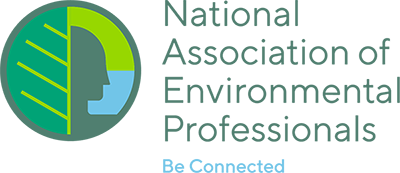- About NAEP
- Membership
- NAEP Chapters
- Working Groups
- Events and Programs
- Awards/Scholarships
- Resources
Event Calendar
|
North Carolina Stream Assessment Method (NC SAM) and Training Course
Tuesday, October 24, 2023 to Friday, October 27, 2023
Category: Chapter Events
North Carolina Stream Assessment Method (NC SAM) and Training CourseRaleigh, NC – October 24-27, 2023Class Location:Class taught in the first-floor auditorium of the NCDOT Highway Building at 1 South Wilmington Street across the street from the southeast side of the Capitol.919-522-6364 (Dorney cell) Registration Fee:$860 for NCAEP members$885 for non-membersConducted by: John Dorney, Sandy Smith, LeiLani Paugh, and Larry Eato This 4-day lecture and field course will focus on the North Carolina Stream Assessment Method (Version 2.1) (NC SAM) that was implemented by the U.S. Army Corps of Engineers, Wilmington District (USACE) in a public notice dated April 21, 2015. The USACE intends to utilize NC SAM for internal reviews of permit applications, including decisions regarding the amount and type of compensatory mitigation, avoidance and minimization of impacts, or other decisions pertaining to aquatic resource quality and functions on a case-by-case basis. Environmental consultants, federal and state agency personnel, and local government staff members who deal with regulatory programs related to streams are encouraged to attend. Emphasis will be on identification of North Carolina stream categories, determination of evaluation areas, discussion of evaluation concepts and functional assessment metrics, familiarization with common stream aquatic life, experience using the computer rating calculator, and field exercises in both undisturbed and disturbed streams. The course will conclude with a written test and aquatic life practical, and successful students will be presented with a Certificate of Training. Though the method is specific to North Carolina, this course may also be useful for professionals who work in neighboring states. Continuing education credits have been requested and approved for Foresters (SAF), Engineers (NCBELS), Landscape Architects (NCBOLA), Erosion & Sediment Control (CPESC), and Storm Water Quality (CPSWQ). In addition, others can be sought upon request. Applicants who are interested in continuing education credits must notify us by e-mail so appropriate arrangements can be made. Register NowJohn Dorney: Senior Environmental Scientist, Axiom Environmental, Inc. and retired from N.C. Division of Water Quality, Wetlands and Stormwater Branch. Mr. Dorney worked with the Division of Water Quality for over 30 years, was actively involved in the development of NC SAM, as well as the N.C. Wetland Assessment Method, and has taught courses in these methods for more than 10 years as well as numerous courses in stream identification in the Southeast. He is an expert in wetland and stream functional assessment, isolated wetlands, as well as wetland and stream permitting and is a lead editor (and chapter author along with Sandy Smith and LeiLani Paugh) for a book published by Elsevier Scientific entitled “Wetland and Stream Rapid Assessments: Development, Validation, and Application”. Edited by John Dorney, Rick Savage, Ralph Tiner, and Paul Adamus” Sandy Smith: Senior Project Manager, Axiom Environmental, Inc. Mr. Smith has worked as a private environmental consultant in North Carolina for 31 years, was actively involved in the development of NC SAM, as well as the N.C. Wetland Assessment Method, and has taught courses in these methods for more than 10 years. He is an expert in wetland delineation, functional assessment, and permitting. LeiLani Paugh: ICI/On-Site Mitigation Group Leader, N.C. Department of Transportation (NCDOT), Project Development and Environmental Analysis Branch, Natural Environment Section. Ms. Paugh has worked for NCDOT for 21 years, was actively involved in the development of NC SAM, as well as the N.C. Wetland Assessment Method, and has taught courses in these methods for more than 10 years. She is an expert in wetland delineation, functional assessment, mitigation, and permitting. Larry Eaton: Larry moved to North Carolina in 1988 from Florida. He chased bugs all over North Carolina to assess water quality by collecting and identifying macroinvertebrates with the DWQ Biological Assessment Unit for 15 years. In 2003 he moved over to the Wetlands/401 Unit to work on small streams (identifying stream origins in the ecoregions in the southeastern US in addition to developing small stream biocriteria and metrics as well as stream restorations, and stream buffers, and watershed plans, and teaching). Larry moved back to the Biological Assessment Unit in 2013, where he rediscovered his affection for stoneflies, most of which don’t live in headwater streams, and then retired. His second attempt at retirement in 2016 was more successful and he now amuses himself by chasing bugs for local municipalities, teaching occasional stream classes, and doing yard work. Logistics: The lecture portion of the course will be conducted in a classroom setting each morning, while field exercises will be conducted at various locations on Tuesday, Wednesday, and Thursday afternoons. All field trips will depart from the classroom site using your own vehicles. Field trips are conducted in all weather conditions except unsafe weather. If field trips cannot be conducted due to weather, the class or a portion thereof will be rescheduled. Knee boots or hiking boots will be adequate for the field trips. 3 The registration fee includes the NC SAM User Manual, class paper supplies, and field trip transportation, as well as field snacks, drinking water and lunches on two field days. Liability waivers must be signed upon your arrival to class. Registration: Class enrollment is set at a minimum of 23 registrants and a maximum of 30 registrants. Payment can be made to the NC Association of Environmental Professionals (NCAEP) by check or credit card. All checks will be held until we are certain that the minimum number of students is achieved for the class. Registration fees must be received by NCAEP no later than October 13, 2023. Cancellations prior to October 13 will receive a full refund. Cancellations after October 13 will receive a refund of the registration fee less a $100 administrative fee. Paid registrations may be transferred to another individual upon written request. No refunds will be given after the start of the class. Registrations after October 13 will be charged an additional $100.00. Message Regarding Coronavirus – Updated August 2023 It is difficult to say what the status of the COVID-19 pandemic will be in October 2023. The statement below assumes that the status of the pandemic will remain the same as it stands at the time of writing in August 2023. It is our top priority to look after the safety of our instructors and workshop participants during the COVID19 Pandemic. The facility at the DOT Highway Building provides sufficient room for widely spaced seating. This space is large enough to accommodate the workshop and allow for adequate social distancing. Wearing of masks or face coverings is recommended for those individuals who either request it or are more comfortable with it. Participants will be asked to drive company or private vehicles to our outdoor field trips to minimize exposure. Hand sanitizer will be made available to workshop participants. We ask that if you or any member of your household has exhibited COVID-19 related symptoms or received a positive COVID-19 test within two weeks of the start date of the workshop to please notify us and a refund will be issued. If it is determined by the NCAEP or the instructors that the workshop cannot safely proceed, participants will be offered a refund, |

 Prev Month
Prev Month View Month
View Month Search
Search Go to Month
Go to Month Next Month
Next Month Export Event
Export Event 

